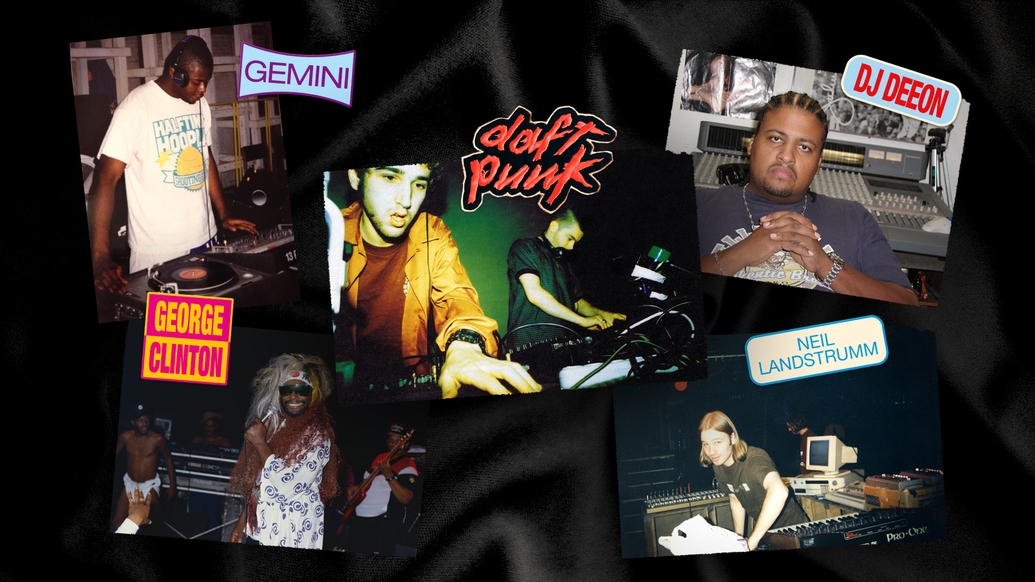Optimized for coding 💻
- Mar 2023
-
soundcloud.com soundcloud.com
Tags
Annotators
URL
-
-
yewtu.be yewtu.be
-
-
-
matthewherbert.bandcamp.com matthewherbert.bandcamp.com
-
matthewherbert.bandcamp.com matthewherbert.bandcamp.com
-
soundcloud.com soundcloud.com
-
soundcloud.com soundcloud.com
-
soundcloud.com soundcloud.com
Tags
Annotators
URL
-
-
soundcloud.com soundcloud.com
-
www.ismn-international.org www.ismn-international.org
-
cisaciswcuat.portal.azure-api.net cisaciswcuat.portal.azure-api.net
-
musicbrainz.org musicbrainz.org
-
MusicBrainz stores ISWCs for works (since the May 2011 server release).
Tags
Annotators
URL
-
-
iswcnet.cisac.org iswcnet.cisac.org
-
-
music-encoding.org music-encoding.org
Tags
Annotators
URL
-
-
music-encoding.org music-encoding.org
-
Tags
Annotators
URL
-
-
meld.web.ox.ac.uk meld.web.ox.ac.ukOverview1
Tags
Annotators
URL
-
-
trompamusic.eu trompamusic.eu
-
trompamusic.eu trompamusic.eu
-
dl.acm.org dl.acm.org
-
A social data infrastructure for music annotation
-
-
dnotes.github.io dnotes.github.io
-
soundcloud.com soundcloud.com
-
soundcloud.com soundcloud.comLithium1
-
yewtu.be yewtu.be
-
soundcloud.com soundcloud.com
-
www.youtube.com www.youtube.com
-
www.youtube.com www.youtube.com
-
www.youtube.com www.youtube.comYouTube1
-
soundcloud.com soundcloud.com
-
soundcloud.com soundcloud.com
-
yewtu.be yewtu.be
-
soundcloud.com soundcloud.com
-
gorillazforbeginners.com gorillazforbeginners.com
-
soundcloud.com soundcloud.comPeople1
-
soundcloud.com soundcloud.comDARE1
-
jimpster.bandcamp.com jimpster.bandcamp.com
-
soundcloud.com soundcloud.com
-
mrscruff.bandcamp.com mrscruff.bandcamp.com
-
ubiquitycompilations.bandcamp.com ubiquitycompilations.bandcamp.com
-
soundcloud.com soundcloud.com
-
soundcloud.com soundcloud.com
-
soundcloud.com soundcloud.com
-
fullblastradio.bandcamp.com fullblastradio.bandcamp.com
-
soundcloud.com soundcloud.com
-
ubiquitycompilations.bandcamp.com ubiquitycompilations.bandcamp.com
-
ubiquitycompilations.bandcamp.com ubiquitycompilations.bandcamp.com
- Feb 2023
-
www.dalekeiger.net www.dalekeiger.net
-
G-L-O-R-EYE-EYE-EYE<br /> by Dale Keiger
-
-
soundcloud.com soundcloud.com
-
soundcloud.com soundcloud.com
-
soundcloud.com soundcloud.com
-
-
-
soundcloud.com soundcloud.com
-
tunebat.com tunebat.com
-
-
www.youtube.com www.youtube.com
-
www.youtube.com www.youtube.comLwp1
-
https://www.youtube.com/@LwpS4C
Welsh contemporary music
-
-
www.saysomethingin.com www.saysomethingin.com
-
Yma o Hyd Course - SaySomethingin
Can't wait for the audio files for this to pop up!
Until then: YouTube video with consecutive Welsh/English subtitles<br /> https://www.youtube.com/watch?v=fkBQAvAFjus
YouTube video from FA Wales with Dafydd Iwan and the Red Wall<br /> https://www.youtube.com/watch?v=43Fag8ZQcz4
-
-
www.insider.com www.insider.com
- Jan 2023
-
en.wikipedia.org en.wikipedia.org
-
www.youtube.com www.youtube.com
-
This seems to have an interesting relation to the tradition of wassailers and "luck visitors" traditions or The Christmas Mummers (1858). The song We Wish You a Merry Christmas (Roud Folk Song Index #230 and #9681) from the English West Country (Cornwall) was popularized by Arthur Warrell (1883-1939) in 1935. It contains lyrics "We won't go until we get some" in relation to figgy pudding and seems very similar in form to Mari Lwyd songs used to gain access to people's homes and hospitality. An 1830's version of the song had a "cellar full of beer" within the lyrics.
I'm curious if the Roud Folk Song Index includes any Welsh songs or translations that have similar links? Perhaps other folk song indices (Child Ballads?) may provide clues as well?
-
-
archive.org archive.org
-
salliefordandthesoundoutside.bandcamp.com salliefordandthesoundoutside.bandcamp.com
-
gramrabbit.bandcamp.com gramrabbit.bandcamp.com
-
classicmusiccompany.bandcamp.com classicmusiccompany.bandcamp.com
-
-
www.youtube.com www.youtube.com
-
thesupermenlovers.bandcamp.com thesupermenlovers.bandcamp.com
-
thesupermenlovers.bandcamp.com thesupermenlovers.bandcamp.com
-
eveharms.itch.io eveharms.itch.io
-
https://eveharms.itch.io/stimuwrite<br /> StimuWrite by Eve Harms
Make writing as addictive as social media
<small><cite class='h-cite via'>ᔥ <span class='p-author h-card'>Kieryn Darkwater :vtrain:</span> in "omg so I remembered seeing a #writing app for #ADHD a long time ago that is actually stimulating instead of a massive white space, and I found it again today. I thought I'd try it out and I've been able to get 1600 words done with less pain than starting at a blank google doc. The hearts and stuff as I type is all the serotonins I need for this. It's worth paying for.https://eveharms.itch.io/stimuwrite " - towns.gay on Jan 11, 2023, 04:12 (<time class='dt-published'>01/24/2023 12:35:14</time>)</cite></small>
-
-
www.youtube.com www.youtube.com
-
www.youtube.com www.youtube.com
-
skunkanansie.bandcamp.com skunkanansie.bandcamp.com
-
www.npr.org www.npr.org
-
Spaces in both language, text, and music help to create the texture of what is being communicated (and/or not).
Link to Edward Tufte's latest book in section entitled "Spacing enhances complex meaning, encourages slow, thoughtful reading":
<small><cite class='h-cite via'>ᔥ <span class='p-author h-card'>KevinMarks</span> in #meta 2023-01-19 (<time class='dt-published'>01/19/2023 11:32:19</time>)</cite></small>
Link to Indigenous astronomy example of negative spaces (like the Great Emu)
-
-
-
latenighttales.bandcamp.com latenighttales.bandcamp.com
-
-
colliebuddz.bandcamp.com colliebuddz.bandcamp.com
-
djsugai.bandcamp.com djsugai.bandcamp.com
-
www.youtube.com www.youtube.com
-
-
luckydube.bandcamp.com luckydube.bandcamp.com
-
thegladiatorsstudioone.bandcamp.com thegladiatorsstudioone.bandcamp.com
-
swingrepublic.bandcamp.com swingrepublic.bandcamp.com
-
quod.lib.umich.edu quod.lib.umich.edu
Tags
- jazz
- wikipedia:en=Peer_Gynt_(Grieg)
- musicbrainz:work=d5d9aa32-e0b0-33ac-aa1f-c4860ffb01bf
- wikipedia:en=Swinging_Suites_by_Edward_E._and_Edward_G.
- duke ellington
- history
- music
- billy strayhorn
- musicbrainz:recording=9c54c2de-6e9a-48fb-ab41-0a067d8d9ed6
Annotators
URL
quod.lib.umich.edu/m/mp/9460447.0005.205/--duke-ellington-billy-strayhorn-and-the-adventures-of-peer -
-
www.youtube.com www.youtube.com
-
github.com github.com
Tags
Annotators
URL
-
-
www.sciencedirect.com www.sciencedirect.com
Tags
Annotators
URL
-
-
-
code.soundsoftware.ac.uk code.soundsoftware.ac.uk
-
slyrobbieariwa.bandcamp.com slyrobbieariwa.bandcamp.com
-
goldenlanetootsandthemaytals.bandcamp.com goldenlanetootsandthemaytals.bandcamp.com
-
soundcloud.com soundcloud.com
-
soundcloud.com soundcloud.comMy Girl1
-
soundcloud.com soundcloud.com
-
soundcloud.com soundcloud.comE-Pro1
-
tributetogunsnroses.bandcamp.com tributetogunsnroses.bandcamp.com
-
soundcloud.com soundcloud.com
-
thebandcake.bandcamp.com thebandcake.bandcamp.com
-
www.youtube.com www.youtube.com
-
www.reverbnation.com www.reverbnation.com
-
timebomb-huperkut.bandcamp.com timebomb-huperkut.bandcamp.com
-
nervousrecords.bandcamp.com nervousrecords.bandcamp.com
-
tedgioia.substack.com tedgioia.substack.com
-
creative fields like music and writing live and die based on creativity, not financial statements and branding deals.
-
- Dec 2022
-
suzannevega.bandcamp.com suzannevega.bandcamp.com
-
www.rollingstone.com www.rollingstone.com
-
www.youtube.com www.youtube.com
-
www.youtube.com www.youtube.comYouTube1
-
www.mixcloud.com www.mixcloud.com
-
manuchao.bandcamp.com manuchao.bandcamp.com
-
manuchao.bandcamp.com manuchao.bandcamp.com
